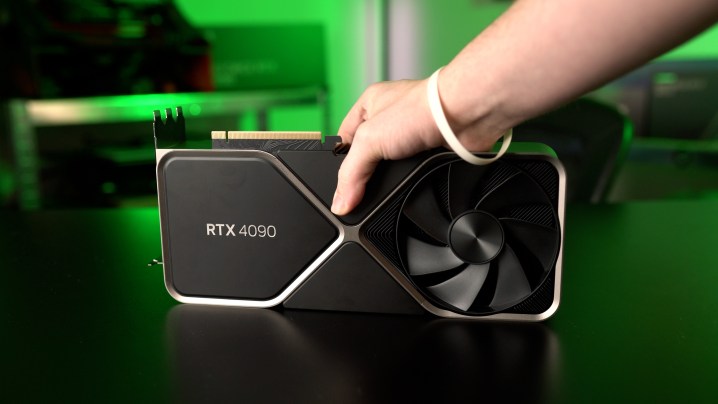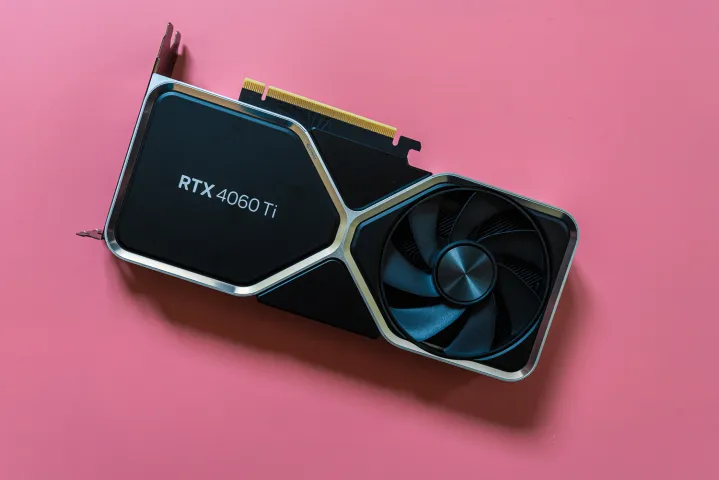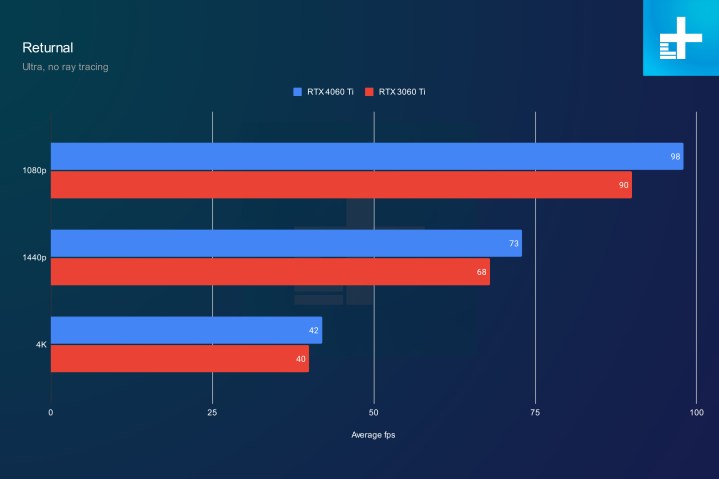
The RTX 4060 Ti 8GB was the most disappointing GPU I reviewed this year. That was true when I reviewed it at launch, and I stand by that statement today.
But recently, I found myself recommending that same GPU to a friend of mine who was building a PC. I wasn’t trying to sabotage his PC — I promise. And so far, he’s having a great time playing games with the card. So how can a GPU be both disappointing and something I’d recommend to a friend?
It sounds like a contradiction, but from the perspective of someone who reviews PC hardware and also makes hardware recommendations to friends and family, it’s simply how things play out sometimes. It’s what makes buying a GPU so complex in today’s landscape and demonstrates why sometimes you have to go beyond product reviews to pick the best component for your PC.
Price is a major factor

There are some products where price isn’t a factor, or at the very least, it takes a back seat to other elements. Take the Lenovo Legion 9i laptop or Sony Bravia A95L as examples. They’re both products that are so expensive at above $3,000 that they’re out of reach for most buyers. Still, as the price increases, it becomes less important. If you look at a $2,800 laptop and a $3,000 laptop, and the latter is clearly better, you’re probably going to spend the extra $200. If we apply that same difference to a $400 laptop and a $600 laptop, however, the price becomes a much more significant factor.
This concept can apply to graphics cards, too. The RTX 4090 launched at $1,600, and you’ll probably need to spend $2,000 to get one today. That’s an obscene price for a GPU. It’s like releasing a gaming laptop that costs $5,000 — that’s too expensive. But if you’re in the market to spend that much money on a GPU, then yeah. It’s the best thing you can buy. Price fades into the background as there are other factors — peak performance in the case of the RTX 4090 — that take priority.
That’s not the case for most graphics cards. Nvidia and AMD are very careful to have a smooth gradient of prices throughout their product stacks. Looking only at current-gen graphics cards, here are lowest prices (on Newegg) for every card from AMD and Nvidia:
- AMD RX 7600 — $270
- Nvidia RTX 4060 — $300
- Nvidia RTX 4060 Ti 8GB — $400
- AMD RX 7700 XT and Nvidia RTX 4060 Ti 16GB — $450
- AMD RX 7800 XT — $520
- Nvidia RTX 4070 — $550
- AMD RX 7900 XT — $780
- Nvidia RTX 4070 Ti –– $800
- AMD RX 7900 XTX — $980
- Nvidia RTX 4080 — $1,200
- Nvidia RTX 4090 — $2,200 (list price $1,600)
From $270 to $550, there are seven GPUs, with a total price difference of $280. From $780 upward, there are six GPUs representing a $1,420 price difference. Lower down the stack, the grouping of GPUs is much tighter than it is higher up. That makes small differences in price a big deal when looking at a GPU purchase.

Let’s get back on the RTX 4060 Ti 8GB. I recommended the
to my friend, which is currently on Newegg for $410. He purchased it at $350 on sale. You can reference the list of prices above to see how big of a difference that $60 savings makes.At list price for this MSI card, you would only be spending an extra $40 to get the next step up in performance and saving $110 if you go with the next step down. That’s why in our RTX 4060 versus RTX 4060 Ti comparison, we recommend the RTX 4060. The Ti model offers a performance improvement, but the price is too high for what it offers.

That math gets thrown off with a sale. At $350 on sale, you’re now only saving $50 to step down the lineup and spending an extra $100 to step up. That’s a massive change.
In the grand scheme of a PC build, $50 doesn’t make much of a difference. But when you’re trying to maximize the value out of each component in your system, those small wins can add up to a PC that is faster and cheaper than what you had originally envisioned. That’s why price is such a significant factor when choosing a graphics card.
PC hardware reviews hit differently

Most reviews are trying to answer a single question: Should you buy the product? GPU reviews are a little different. Ultimately, we’re trying to answer the same question with a GPU review, but we’re also looking much closer at price and factoring historical context into the review in a more significant way.
For GPUs, we’re looking at just three companies: AMD, Nvidia, and more recently, Intel. Because of that, a big factor in a GPU review, or a PC hardware review in general, is the generational improvement. We’re not just looking at the GPU in the context of what else you can buy today, but also what the company delivered on its previous attempt.
This is an important dynamic to ensure that the few companies releasing GPUs continue to deliver new, exciting products to customers. Reviewers expect a certain level of improvement from each generation to make sure buyers are getting more performance for their dollar. Without that check in place, PC hardware can end up in a place similar to Intel’s 14nm days, where each generation barely moves the needle in terms of performance.
Generational improvements are also important because the crux of a PC hardware review is mostly focused on performance. If we look at laptops as an example, we constantly see brands move to a new generation with the same old hardware and little or no performance improvement. These products can justify a new generation in different ways — a better design, a nicer screen, a more comfortable keyboard, etc. For these types of products, performance is only one of many factors, so it’s weighed less significantly.

PC hardware is mostly valued on performance, so if there are insignificant uplifts from one generation to the next, it impacts the final evaluation more heavily. If a new piece of PC hardware only provides a 5% performance improvement, it’s disappointing and it will be reviewed as such. But it’s still faster than the thing it’s replacing, so it still might be the right purchase for you.
We can apply these ideas to the RTX 4060 Ti. The card is faster than the GPU it’s replacing, and for the same price. If you have a strict budget at $400, the RTX 4060 Ti is the GPU you should buy. That doesn’t mean it should receive a positive review. For this particular card, the generational performance improvements are disappointing and it has a constrained memory interface that holds back its future potential. A GPU review isn’t just answering if you should buy the card or not, but also seeing how well it satisfies the expectations for a particular class of card.
Look at the scope

I just went deep on how significant performance is to where a GPU lands in reviews, but it’s important not to take that idea too far. If we did, the RTX 4090 would be the best graphics card and the RX 7600 would be the worst, and neither of those are true. You need to factor in the scope of a GPU and what you’re trying to do with a PC.
For my friend, he was looking for something that could deliver frame rates above 60 frames per second (fps) in most games at Ultra settings, while occasionally dabbling in Nvidia’s DLSS 3.5. Originally, I recommended the RTX 4060, which has some of its own problems as you can read in our RTX 4060 review. The RTX 4060 Ti then went on sale, so we changed gears on the build.
Both of these cards have problems, but they fit in the scope of the PC my friend was trying to build. The RTX 4060 Ti may be the most disappointing GPU of the year, but it satisfied the needs of my friend who was building a PC at a particular price. For his situation, it was the best GPU to buy, no matter what reviews say about the card.
When you’re building your PC, you should take that same approach. Read as many reviews as you can and consider all of your options — even if that means buying a lower-class card or allocating more of your budget to a higher class. But once it’s time to finally make the purchase, make sure you’re getting a card that meets your needs for the PC.
Editors' Recommendations
- I want to love Asus’ gaming earbuds, but there are problems
- The RTX 50-series may fix the biggest weakness of its predecessor
- The RTX 4090 is more popular on Steam than any AMD GPU
- How I unlocked the hidden modes of DLSS
- The war between PC and console is about to heat up again




